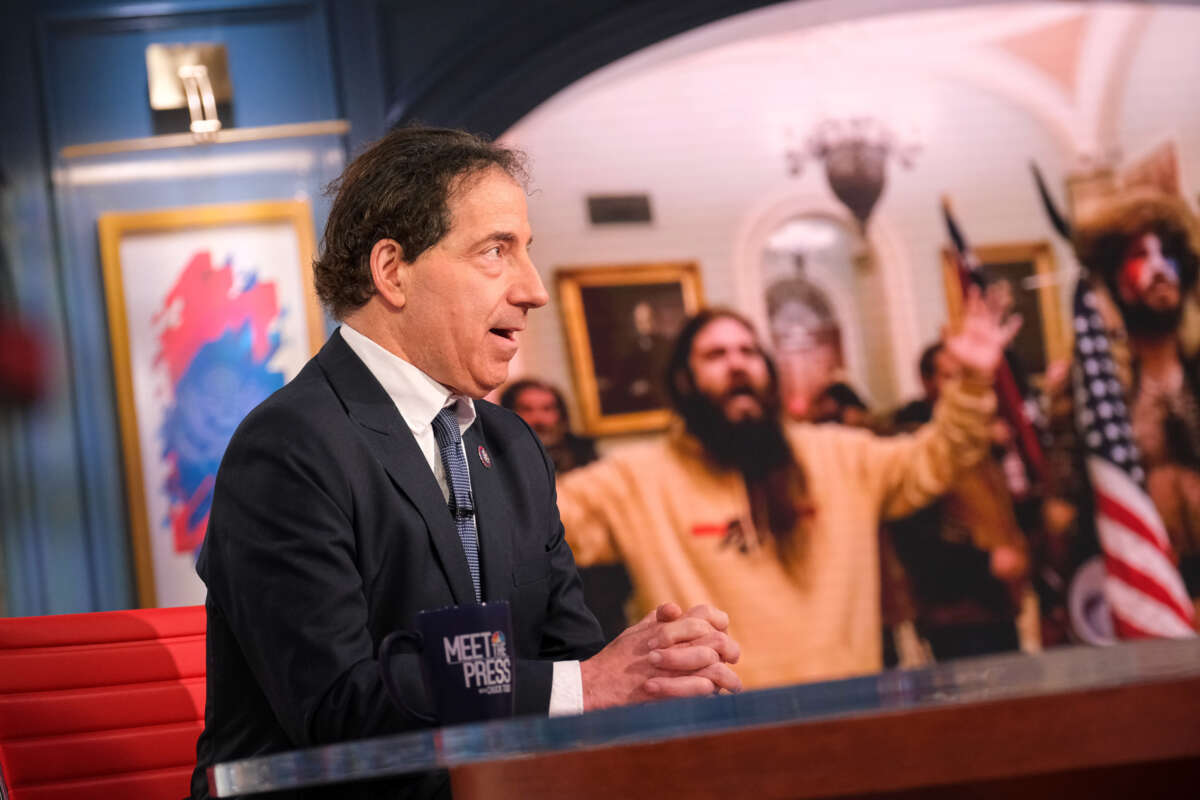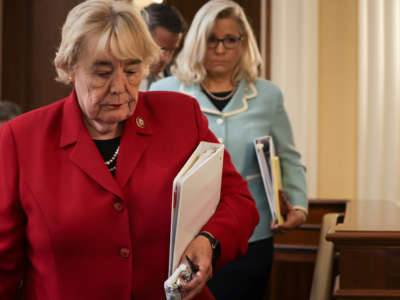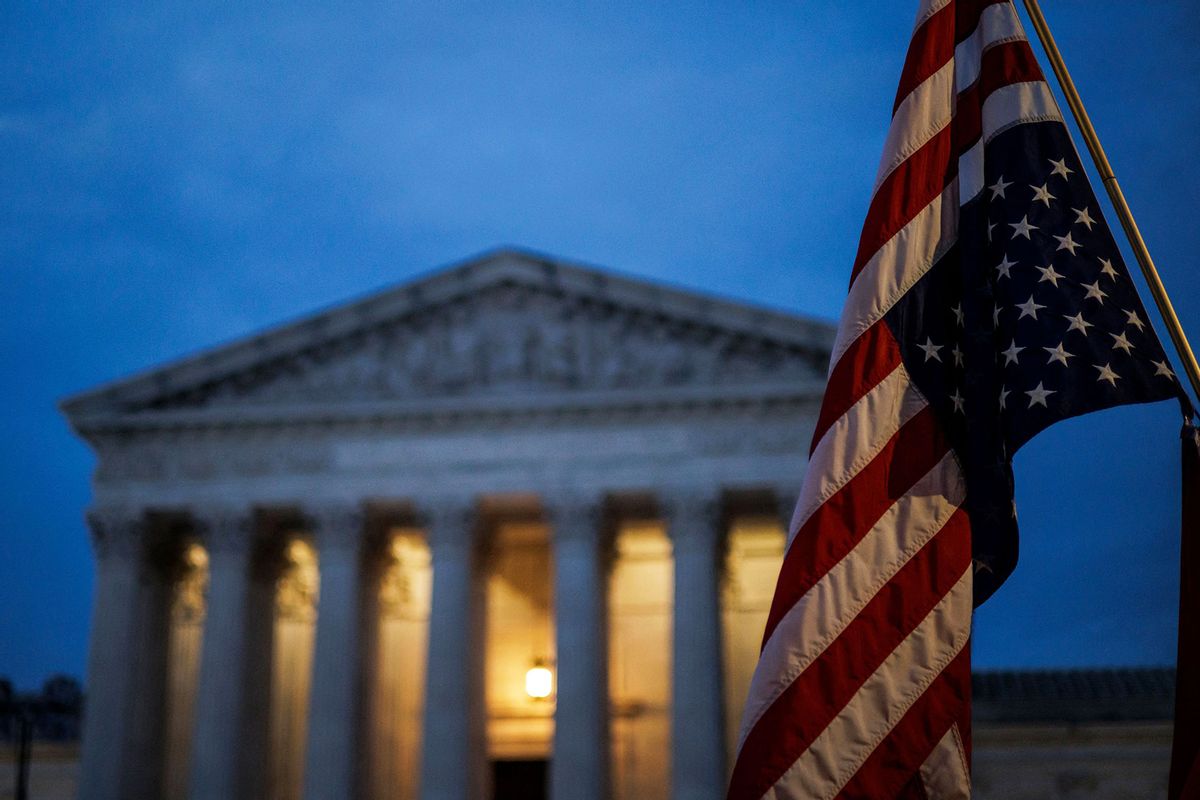Jamie Raskin Says It’s Time to End the Electoral College
“We should elect the president the way we elect governors, senators, mayors, [and] representatives,” Raskin said.
By Chris Walker , TRUTHOUT
Published December 28, 2022

Rep. Jamie Raskin appears on Meet the Press in Washington, D.C., on June 19, 2022.
WILLIAM B. PLOWMAN / NBC VIA GETTY IMAGES
On Sunday, Rep. Jamie Raskin (D-Maryland) said lawmakers in Congress should begin the process of abolishing the Electoral College, describing the mechanism as a danger to the American people due to the plethora of ways it can be exploited.
In comments on CBS’s “Face the Nation” program, Raskin said that presidents should be elected by a popular vote model instead.
“We should elect the president the way we elect governors, senators, mayors, representatives, everybody else — whoever gets the most votes wins,” Raskin said.
Raskin noted that other countries reject the framework of the Electoral College. “We spend hundreds of millions of dollars every year exporting American democracy to other countries, and the one thing they never come back to us with is the idea that, ‘Oh, that Electoral College that you have, that’s so great, we think we will adopt that too,'” he said.
Notably, the Electoral College system provides several avenues for a presidential candidate to subvert the will of the people, the Maryland Democrat explained.

Jan. 6 Panel Members Propose Reforms to Electoral College Certification Process
The bill would definitively state that the vice president’s role in certifying electors’ votes is purely “ministerial.” By Chris Walker , TRUTHOUT September 20, 2022
“There are so many curving byways and nooks and crannies in the Electoral College that there are opportunities for a lot of strategic mischief,” Raskin said.
Earlier this month, as part of the omnibus spending package, both houses of Congress passed the Electoral Count Reform Act, legislation that would limit ways for lawmakers to seek to subvert the outcome of the Electoral College vote; the bill is largely a response to actions by Republicans in early 2021, when members of the party aligned with former President Donald Trump to challenge electors’ votes in several states that Trump lost to President Joe Biden.
“I’m for [the Electoral Count Reform Act], and that’s the very least we can do and we must do,” Raskin said. “It’s necessary, but it’s not remotely sufficient.”
Raskin, a member of the January 6 committee, added:
The Electoral College now — which has given us five popular-vote losers as president in our history, twice in this century alone — has become a danger, not just to democracy, but to the American people. It was a danger on January 6.
Although abolishing the Electoral College would require a constitutional amendment, Raskin is far from alone in his views. A majority of Americans support ending the Electoral College system and replacing it with a popular vote model instead.
According to polling this past summer from Pew Research Center, 63 percent of Americans back a popular vote method for picking the president, while just 35 percent say they want to keep the current system in place.
This rate of support is the highest Pew Research Center has seen on the question since at least the year 2000.
On Sunday, Rep. Jamie Raskin (D-Maryland) said lawmakers in Congress should begin the process of abolishing the Electoral College, describing the mechanism as a danger to the American people due to the plethora of ways it can be exploited.
In comments on CBS’s “Face the Nation” program, Raskin said that presidents should be elected by a popular vote model instead.
“We should elect the president the way we elect governors, senators, mayors, representatives, everybody else — whoever gets the most votes wins,” Raskin said.
Raskin noted that other countries reject the framework of the Electoral College. “We spend hundreds of millions of dollars every year exporting American democracy to other countries, and the one thing they never come back to us with is the idea that, ‘Oh, that Electoral College that you have, that’s so great, we think we will adopt that too,'” he said.
Notably, the Electoral College system provides several avenues for a presidential candidate to subvert the will of the people, the Maryland Democrat explained.

Jan. 6 Panel Members Propose Reforms to Electoral College Certification Process
The bill would definitively state that the vice president’s role in certifying electors’ votes is purely “ministerial.” By Chris Walker , TRUTHOUT September 20, 2022
“There are so many curving byways and nooks and crannies in the Electoral College that there are opportunities for a lot of strategic mischief,” Raskin said.
Earlier this month, as part of the omnibus spending package, both houses of Congress passed the Electoral Count Reform Act, legislation that would limit ways for lawmakers to seek to subvert the outcome of the Electoral College vote; the bill is largely a response to actions by Republicans in early 2021, when members of the party aligned with former President Donald Trump to challenge electors’ votes in several states that Trump lost to President Joe Biden.
“I’m for [the Electoral Count Reform Act], and that’s the very least we can do and we must do,” Raskin said. “It’s necessary, but it’s not remotely sufficient.”
Raskin, a member of the January 6 committee, added:
The Electoral College now — which has given us five popular-vote losers as president in our history, twice in this century alone — has become a danger, not just to democracy, but to the American people. It was a danger on January 6.
Although abolishing the Electoral College would require a constitutional amendment, Raskin is far from alone in his views. A majority of Americans support ending the Electoral College system and replacing it with a popular vote model instead.
According to polling this past summer from Pew Research Center, 63 percent of Americans back a popular vote method for picking the president, while just 35 percent say they want to keep the current system in place.
This rate of support is the highest Pew Research Center has seen on the question since at least the year 2000.






.png)

